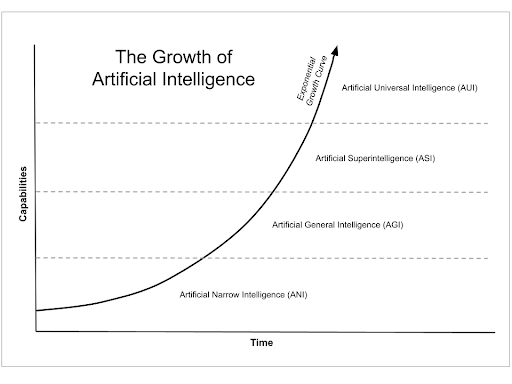Artificial General Intelligence (AGI): The Future of Human-Like AI
Introduction
Artificial Intelligence (AI) has rapidly evolved over the past few decades, transforming industries and reshaping how humans interact with machines. While today’s AI systems, like ChatGPT and self-driving cars, demonstrate impressive capabilities, they remain limited to specific tasks. The next frontier in AI research is Artificial General Intelligence (AGI)—a form of AI that can perform any intellectual task a human can.
What is AGI?
Artificial General Intelligence (AGI) refers to a highly autonomous system that can understand, learn, and apply intelligence across a wide range of tasks, just like a human. Unlike current AI models, which excel in specialized domains (such as image recognition or language processing), AGI would have the ability to think, reason, and adapt in unfamiliar situations without being explicitly trained for them.
How is AGI Different from AI?
1. Narrow AI (ANI) vs. AGI
- Narrow AI (ANI): Also known as Weak AI, it is designed for specific tasks. Examples include voice assistants like Siri, recommendation algorithms, and self-driving cars.
- AGI (Strong AI): A system capable of performing any cognitive task that a human can, such as problem-solving, creativity, reasoning, and even emotional intelligence.
2. Key Differences
| Feature | Narrow AI | AGI |
|---|---|---|
| Task Flexibility | Limited to predefined tasks | Can perform any task requiring intelligence |
| Learning Capability | Requires massive labeled data for training | Can learn from experience, similar to humans |
| Adaptability | Struggles in unfamiliar situations | Can generalize and adapt to new environments |
| Self-Awareness | No self-awareness or consciousness | Potentially self-aware and capable of reasoning |
The Challenges of Building AGI
Developing AGI is one of the most complex challenges in technology and science. Some of the key hurdles include:
1. Computational Power
AGI requires massive computing power to process and analyze information like a human brain. Current AI models are powerful but still far from achieving the efficiency of the human mind.
2. Understanding Consciousness
For AGI to truly replicate human intelligence, it must develop some level of consciousness and self-awareness—something that scientists are still trying to define and understand.
3. Learning and Generalization
Unlike humans, AI struggles to apply knowledge from one domain to another. Creating an AGI system that can generalize knowledge across different fields is a significant challenge.
4. Ethical and Safety Concerns
- Control Problem: How do we ensure AGI aligns with human values?
- Existential Risk: Could AGI become too powerful and uncontrollable?
- Bias and Fairness: If AGI learns from biased data, it could amplify discrimination.
The Potential Impact of AGI
Despite these challenges, AGI could revolutionize every aspect of human life:
1. Scientific Discovery
AGI could accelerate medical research, space exploration, and environmental solutions by rapidly processing complex data.
2. Automation & Workforce
With human-like intelligence, AGI could take over high-level tasks, leading to increased productivity but also raising concerns about job displacement.
3. Human Enhancement
AGI could be integrated with human brains through brain-computer interfaces (BCIs), enhancing human intelligence and capabilities.
4. Solving Global Problems
From climate change to disease outbreaks, AGI could provide solutions to some of humanity’s greatest challenges.
The Future of AGI
While AGI remains a distant goal, leading AI researchers and companies like OpenAI, Google DeepMind, and Meta are making progress toward its development. Some predict AGI could be achieved within the next 50 years, while others believe it may take centuries.
Regardless of when it arrives, AGI has the potential to redefine human civilization. Ensuring it is developed responsibly and ethically will be critical to harnessing its benefits while minimizing risks.
Conclusion
Artificial General Intelligence represents the next major leap in AI, bringing us closer to creating machines that think, learn, and reason like humans. While challenges remain, the pursuit of AGI holds the promise of transforming society in ways we can only begin to imagine. The question is no longer if AGI will be developed, but when—and how we will handle its immense power.
🚀 What do you think about AGI? Is it a threat or a blessing? Let’s discuss in the comments!






Comments
Post a Comment